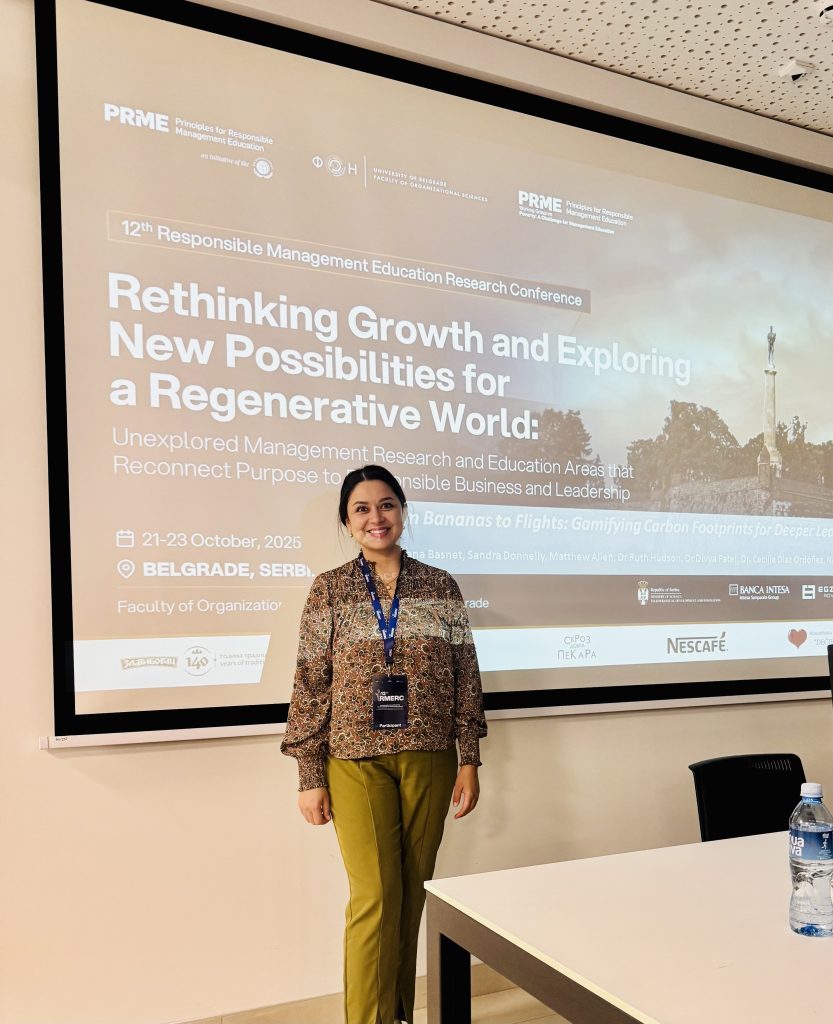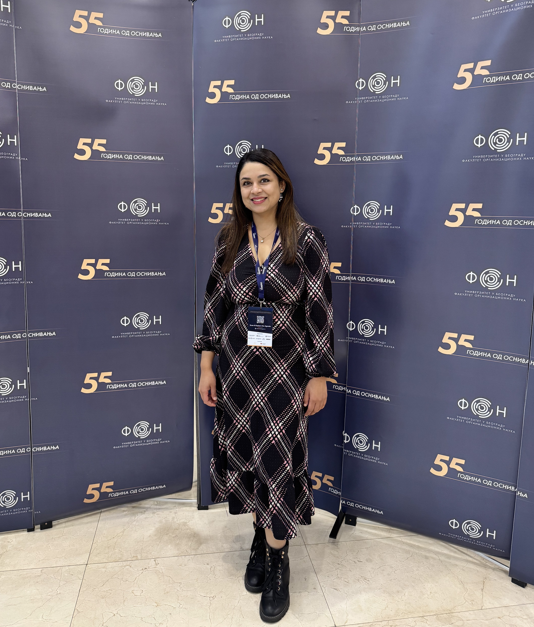Last month, Dr Anjana Basnet, Lecturer in International Business and Strategy and PRME (Principles for Responsible Management Education) Coordinator at the University of Salford, presented the research paper ‘From bananas to flights: gamifying carbon footprints for deeper learning’ at the Responsible Management Education Research Conference (RMERC) 2025 in Belgrade, Serbia.
The conference, organised by the University of Belgrade in collaboration with the PRME Working Group on Poverty, brought together educators and practitioners from around the world to explore how business education can drive sustainability and purpose. The event highlighted innovative approaches to embedding responsibility and ethics into teaching and leadership development across diverse contexts.
Making climate data tangible
Anjana’s session focused on the classroom game How bad are bananas? developed by Future We Want and inspired by Mike Berners-Lee’s book of the same name. The game, used within Salford’s Carbon Literacy course, challenges students to compare the carbon impact of everyday actions – from eating a banana to taking a flight.
The exercise consistently sparks curiosity and conversation as students are often surprised by the results. By making abstract climate data more tangible, it encourages reflection on personal choices while connecting these insights to wider environmental and social issues.
From passive learning to active engagement
This gamified approach transforms learning from passive listening to active participation. Rather than simply hearing about the climate crisis, students are questioning, debating and linking ideas to their own ideas.
This method aligns closely with the University of Salford’s Strategy 2025 to 2030 and the PRME i5 framework, both of which emphasise learning that is meaningful, joyful and collaborative. By embedding interactive elements into teaching, educators can help students explore complex topics, challenge assumptions and develop a deeper understanding of sustainability in practice.
Looking ahead
Reflecting on the experience, Anjana noted that the RMERC 2025 was filled with passionate educators and researchers committed to placing responsibility at the heart of management education. The opportunity to share ideas and learn from international colleagues reinforced the sector’s growing enthusiasm for creative and purpose-driven teaching.
As the team continues to develop its gamified approach, the potential of playful learning to inspire serious change remains clear. As Anjana explained: “If a simple classroom game about bananas can spark meaningful climate conversations, it shows the power of combining creativity and purpose to inspire deeper learning and real change in education.”

